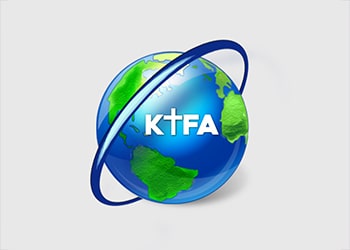DJ: DID YOU KNOW?
July 21st Post 2024 (Procrastination)
With the troubles of the world in full swing daily, and the relentless narratives of Intel providers spewing exaggerated or expanded information of the engagement of the GCR, our minds go to a place of hope. But not the good kind.
Hope, while often a virtue, can foster procrastination when it becomes an expectation of future rewards rather than an active motivator for present action. When we hope for an ideal outcome, such as a sudden windfall or a perfect opportunity, we may convince ourselves that waiting is the best course of action.
This kind of hope can lead to a false sense of security, making us believe that our desired future will materialize on its own, without the need for our immediate effort.
Consequently, we delay taking steps toward our goals, assuming that circumstances will eventually align in our favor. This passive hope, detached from action, transforms into a subtle but powerful form of procrastination, where the anticipation of future success undermines the imperative to act in the present.
Procrastination steals time and opportunity highlighting our tendency to delay tasks despite knowing their eventual necessity. While we waste our time hesitating and postponing, life is slipping away. While we may delay, time will not. At its core, this is the damage done by Intel providers with their misleading dialogs and exaggerations.
Whether it’s waiting for a perfect opportunity, a financial breakthrough, or a stroke of inspiration, this waiting game often leads to complacency. The idea of waiting for a windfall can be seductive. It offers the comfort of a future where everything falls perfectly into place without effort and often results in missed opportunities and unfulfilled potential. The belief in an imminent windfall can create this dangerous complacency. By postponing action, we often find ourselves unprepared when our supposed windfall arrives. This delay can lead to regret and the painful realization of wasted time.
As Aristotle suggested, “We are what we repeatedly do. Excellence, then, is not an act, but a habit.” By developing habits of consistent effort and incremental progress, we can overcome the damage of procrastination and build a life of achievement and fulfillment.
The point is, absorb this information as it comes but don’t be so preoccupied with it that it changes the course your life might have otherwise taken. Be mindful of the stagnation and complacency it can cause and devote your efforts and time to it when you have it in hand.
If you know how to swim, waiting on the bank for a boat to show up may not be the best way across the water. These Intel providers keep telling you the boat is on the way, don’t let yourself get left on the bank stuck in the mud.
DJ
************
KTFA
Henig: Vietnam: New decree on cashless payments
BY OANH H. K. NGUYEN, THUY VAN T. PHAM AND VIET TRUNG NGUYEN JULY 16, 2024
In brief
On 15 May 2024, the Government officially issued the new Decree No. 52/2024/ND-CP to regulate cashless payments (“Decree No. 52“). Decree No. 52 takes effect from 1 July 2024 and replaces the previous Decree No. 101/2012/ND-CP on cashless payments, as amended from time to time (“Decree No. 101“).
Among other things, Decree No. 52 sets forth regulations mainly on opening and using payment accounts, cashless payment services and intermediary payment services (IPS). Decree No. 52 aims to promote non-cash payments, facilitating the digital transformation of the banking industry and developing superior payment products and services.
Key takeaways
Decree No. 52 provides a number of significant changes and novel provisions, some of which are highlighted below.
Decree No. 52 imposes stricter requirements on entities wishing to provide the services. In addition, electronic money remittance support services are no longer considered a kind of IPS.
Decree No. 52 provides more detailed guidelines on how payments in foreign currencies and international payments are made. It also sets forth the conditions for entities wishing to participate in the international payment system.
The definition of electronic money (e-money) is introduced for the first time, and e-wallets and prepaid cards are accordingly regulated as a mean to store e-money.
More in-depth in the rest of the story at the link–this is a fairly long article, didn’t want to take up too much bandwidth on this site.




